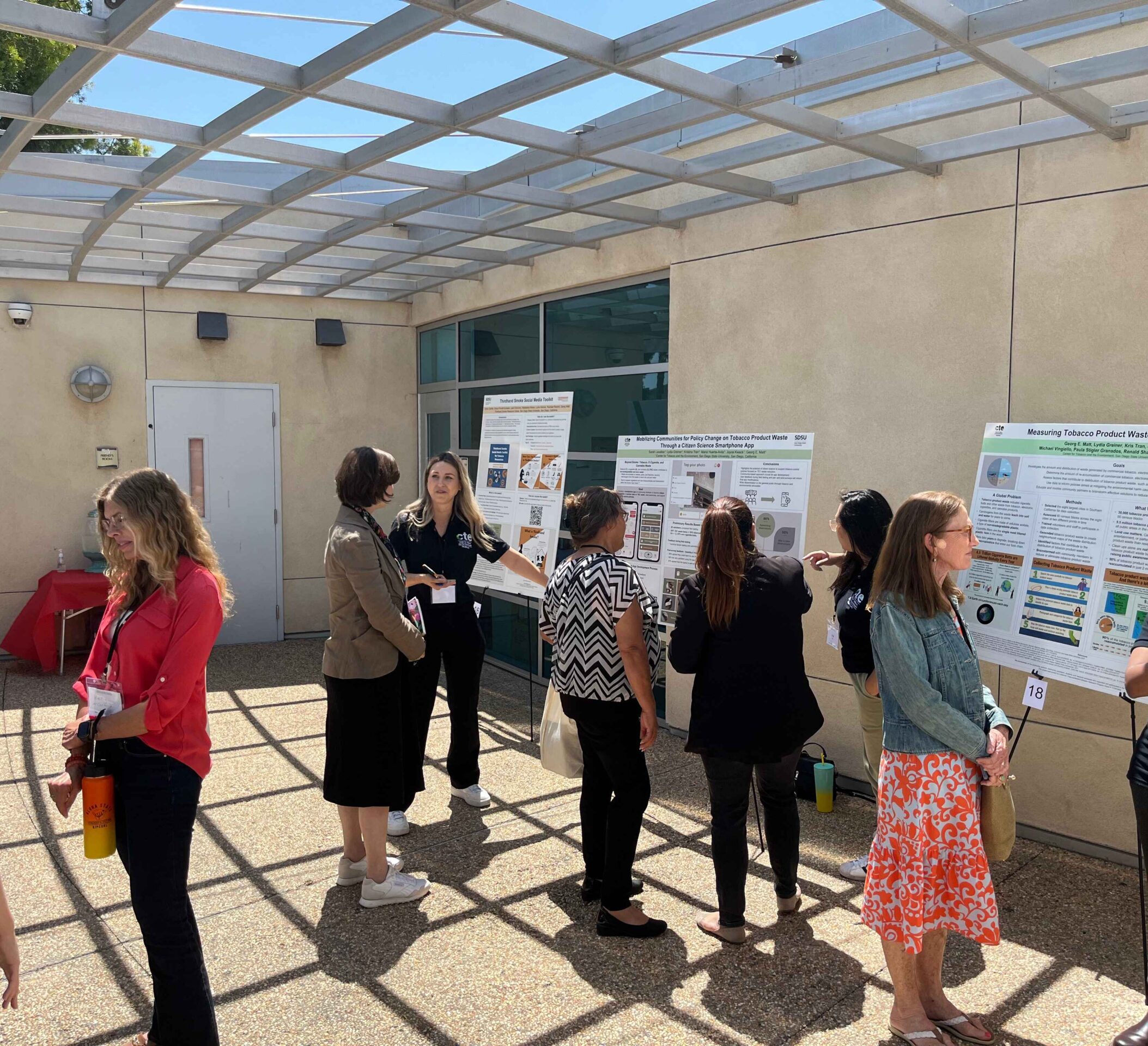Our Vision
We envision a world where everybody can grow up, play, work, and enjoy life in indoor and outdoor environments free of toxic commercial tobacco product pollution.

We envision a world where everybody can grow up, play, work, and enjoy life in indoor and outdoor environments free of toxic commercial tobacco product pollution.
We conduct community-driven tobacco policy research that leads to cleaner and healthier indoor and outdoor environments by eliminating the toxic legacy of commercial tobacco products.

The Policy Research Center on Tobacco and the Environment, funded by the Tobacco-Related Disease Research Program, is a collaborative effort by SAY San Diego and San Diego State University as well as a broad range of community partners to address tobacco-related policy concerns in San Diego County. It is one of four policy research centers on tobacco in California. The Center’s policy efforts are guided by our community partners, who help identify and prioritize community concerns related to tobacco and the environment, provide feedback on the development and implementation of research projects to address these concerns, and help to communicate findings to community members, policy makers, and other stakeholders. Our community partners are a diverse group of individuals from throughout San Diego County.
All Center activities are dedicated to local and state policy initiatives aimed at preventing, reducing, and eliminating the harmful consequences of outdoor and indoor environmental pollution from commercial tobacco sales and use. Over the next four years, we will conduct short-term research projects designed to collect information that can inform local and state policy efforts. We investigate issues that affect indoor environments, such tobacco smoke intrusion in apartment homes, and outdoor environments, such as tobacco product waste in our local waterways. In addition, we offer training, mentoring, and educational opportunities focused on tobacco and the environment to communities, students, and emerging researchers.

Funded by the Tobacco-Related Disease Research Program Grant #: T33PC6863